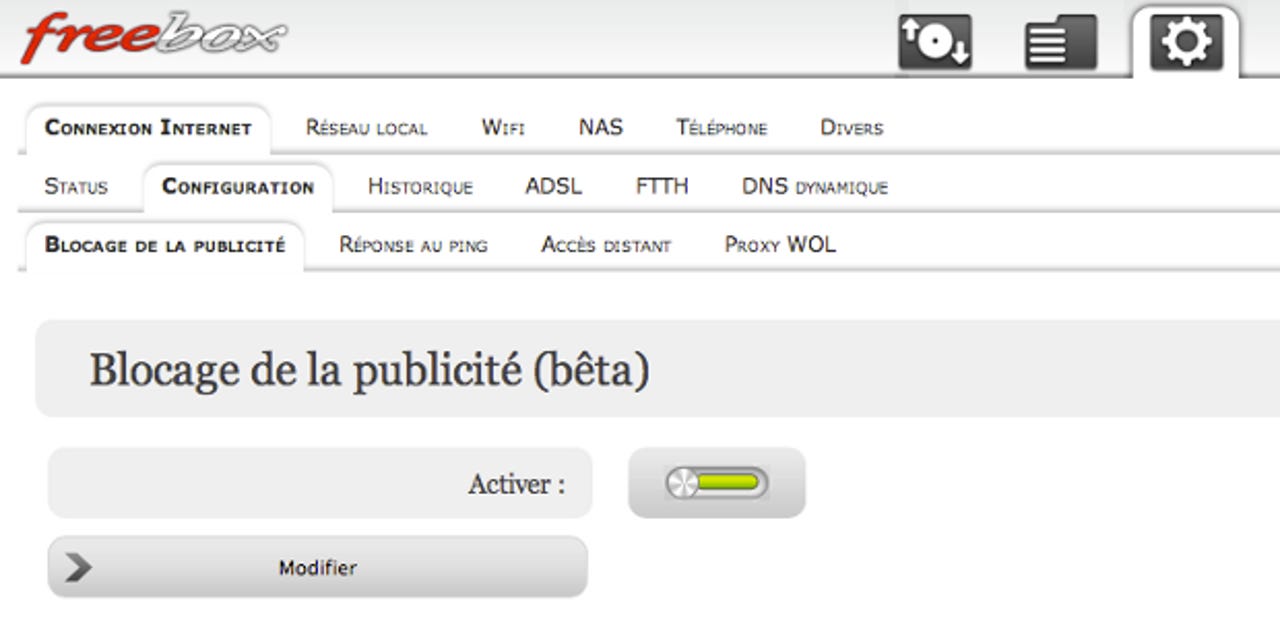French ISP that killed Google ads changes its mind about silent ad blocking

Last week, French ISP Free rolled out the latest update to its Freebox, the DSL modem it gives away to subscribers, only to reverse its decision after sparking an outcry.
Within hours of its release on Thursday, the Freebox update had its own Twitter hashtag - #AdGate – and kept French web users tweeting throughout the weekend. The controversy was a result of one of the update's new features: an ad blocker, activated by default. Free subscribers whose Freebox applied the update saw several types of ads disappear: Adwords in Google search results, Google Ads on websites, and even ads on some YouTube videos.
Free is a major ISP in France. As of 30 September last year, it claimed more than 5.2 million subscribers, around 22 percent of all DSL subscribers in France. The deployment of this new feature surprised many people: the Freebox updates are silent – the software is downloaded and installed automatically without the user needing to do anything and without them being informed of it. The only way users may notice the update's arrival is by spotting the Freebox rebooting itself automatically after the update is installed. Free didn't warn its subscribers about the ad blocker's appearance, nor instruct them on how to deactivate it.

A serious offence to net neutrality?
In France, as in the rest of world, a lot of free online services rely on ads to exist, and the ad blocker is already attracting the ire of a number of companies: students' social network Media Etudiant, for example, temporarily set up a warning to inform its visitors using Free DSL lines of the new ad-blocker and of the way it might harm the social network.
The Syndicat des Régies Internet (SRI), which represents several major French online advertising agencies - and says it is opposed to "the activation by default of any blocking system" - acknowledges that some websites have been "qualitatively impacted" by the Free ad blocker, but said that it was too soon to produce any figures on how far sites had been affected.
The French Pirate Party has also been quick to criticise the new feature, saying Free "has gone beyond a line that no access provider should cross". According to the party, the ad filter didn't apply to every ad on every website: the website of the French daily Le Monde, LeMonde.fr, was spared from the ad blocking – "a newspaper of which Xavier Niel, Free's founder, is a shareholder", the party noted – as was Dailymotion, a French competitor of Google's YouTube. "The state and ISPs must guarantee undifferentiated access to all online service for all internet users" and "the deployment of such a filter... should fall solely on an individual's free will", the party added in a statement.
Up to the French government
The issue has proved significant enough for both the French government and the country's communications regulator Arcep to get involved.
On Friday, the French regulator said it had asked Free about "the goal and the inner workings" of its ad-blocker, adding that it is looking into the "the lawfulness of this feature with regard to the laws on electronic communications".
The French minister for the digital economy Fleur Pellerin took to Twitter shortly after the news broke to say she "doesn't like invasive ads that much, but favours an opt-out-by-default kind of solution."
Yesterday, Pellerin organised separate meetings with Free, website editors, and advertising agencies. Such ad filtering is "not quite fully compatible with the idea of a free and open internet... One stakeholder cannot change the whole system unilaterally", Pellerin said, according to ZDNet France. The ISP was "receptive" during the discussions, Pellerin added. It has since disabled the filter.
Bandwidth and infrastructure costs
Neither Free nor Google responded to requests for comments. But behind the scenes, the ISP's move seems related to the costs of bandwidth and of the supporting infrastructure.
According to Pellerin, it all comes down to "the relationship between ISPs or telcos and service providers on bandwidth management," especially as online video services consume more and more of it: "During the upcoming years, with the advent of connected TV, Google TV, Apple TV and Amazon TV, the bandwidth consumption will be more and more massive. The question is who is going to pay for the required investments."
For the French minister, it "wouldn't be illogical" that the larger online service providers contribute to the financing of the networks. A meeting between industry figures, politicians and others about net neutrality is planned in Paris on 17 January, and Pellerin is expecting it to yield answers to such pressing questions.